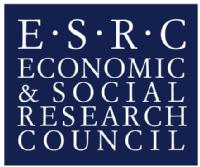Project 2 - Pathways into Employment for Young People from School and College
Context
This project is examining the understandings, use and experiences of unpaid and involuntary temporary and part-time working on young people who leave school and further education college, but who have no aspiration to enter higher education. Historically, it is this group of young people who have experienced the most difficult transitions from education to the labour market, particularly for those with few educational qualifications and specific skills. This group’s difficulties in accessing full-time paid employment have been a staple news item and increasing source of concern since the financial crisis of 2008. The focus of this project is on young people aged 15 to 24 years old. There has been a significant amount of research on this group of young people but this has mainly focused on problems of transition to full-time employment and access to qualifications and skills training. There is almost no evidence examining this group’s involvement in unpaid work, or part-time and temporary working.
The aim of this project is therefore to build a detailed account of how young people perceive, understand, experience and use these forms of work as they seek employment and negotiate the labour market pathways available to them. This project is therefore designed to produce unique and original data on an unresearched element of young people’s labour market activity, but also complement the investigation of internships, unpaid and involuntary part-time and temporary work in the graduate labour market undertaken by Project 3.
Research Questions
- What types of unpaid work experience and temporary and part-time working do young people not intending to enter higher education engage in?
- How does this group of young people experience and assess these forms of working, and what opportunities and dilemmas do they see them involving?
- How does this work experience feature in young people’s understandings of the pathways to work available to them?
- In what ways do the forms of unpaid and other precarious forms of working undertaken by this group of young people differ from those in Project 3?
- How does this group’s understandings of unpaid and other precarious forms of working, together with their assessments of the opportunities and constraints it contains, compare with these young people in Project 3?
Methods
Little or no data exists on the involvement, experience and use of unpaid and involuntary part-time and temporary working among young people aged 15 to 24 years old. A central objective of this project is therefore to produce a unique and original data set capable of answering the Project’s research questions. The Project will therefore generate its own data through a combination of focus group/workshops and individual interviews. This research will be undertaken in two complementary stages.
Stage 1 will involve conducting focus groups in schools, further education colleges and other organisations where young people aged 15 to 19 years old gather. These opportunities for discussion and debate will comprise of 5 to 8 young people and 6 to 8 focus groups/workshops will take place.
Stage 2 will involve conducing 100 interviews with young people aged 15 to 24 years old. Initial individual interviews will be undertaken with young people identified from the focus groups/workshops and the sample will then be expanded. One key element of this stage of the research will be to undertake follow-up interviews with a subsample of young people to examine the value of unpaid and involuntary temporary and part-time working as they look to make their way into work.
 |
 |
 |

